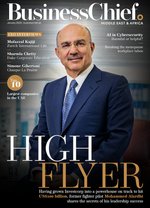Family office trends and priorities amid Middle East growth

The last year has seen an increase in Family Offices setting up shop in the Middle East.
This is especially true in the UAE, which has attracted some of the world’s biggest names in recent months.
Among the latest openings, Hong Kong-headquartered single-family office Tsangs Group launched its Dubai office last year, while earlier this year, American hedge fund billionaire and investor Ray Dalio set up a branch of his family office in Abu Dhabi Global Market.
And rumours have been swirling for some time that Asia’s richest person, Gautam Adani, is considering setting up a family office in Dubai.
All are looking to tap the market, which in the UAE is set to reach AED 3.67 trillion (US$1 trillion) in the next few years. Dubai alone has US$517 billion in wealth, the highest of any Middle Eastern city.
Catering to this, the UAE has seen an influx of asset management firms, with Edmond de Rothschild, EnTrust Global, Nomura Singapore, and The Family Office Company all establishing a presence in the Dubai International Financial Centre.
“We are seeing more and more businesses and families beginning to headquarter themselves in the Middle East,” says Selim Elgen, MEA Head of Citi Private Bank.
Selim points out how the region is becoming an increasingly important location for Citi to better engage with clients and to create wealth in the region.
“We are seeing that our clients in the region are at various stages of the wealth transition to the next generation and we have a very focused strategy on dealing with this entire opportunity.”
Globally, family offices have become multi-trillion-dollar businesses, with major ones influencing the sector’s power plays. In many cases, these offices have become the de-facto parking mechanism for UHNI’s wealth.
An estimated 17,000 family offices worldwide have combined assets of $10 trillion (Dh36.7 trillion), with around 25% of these assets in the real estate sector.
Trend and insights – family offices
A recent global survey of 268 family office members by Citi offers insight into the global challenges and opportunities that family offices face today.
Among concerns for family offices, inflation, interest rate increases and geopolitical uncertainty come out top – with two-thirds of respondents seeing mark-to-market portfolio increases in the first half of 2023 and nearly all expect positive portfolio returns over the next 12 months.
“In an environment of rising financial markets, recession fears and multi-year high bond yields, in 2023, many family offices reassessed their asset allocation more in recent years,” the 2023 Global Family Office Survey Insights reports states. More than half reported increasing fixed income allocations, while 38% upped private equity allocations and 38% cut public equity allocations.
Direct investing remains a strong focus for family offices, the report finds. But while 66% of family offices surveyed sasid they were looking for opportunistic deals based on attractive valuations, 38% had paused new direct investments due to economic uncertainty.
Technology was the most popular sector for direct investment by family offices in the Middle East, with healthcare among the region’s top three sectors for the majority of family offices regionally.
Three-quarters of family offices now report their primary focus has shifted toward wealth management and investment management – far ahead of fostering unity and continuity. That said, the report found families themselves are focused on preparing for the future by preserving asset value and preparing the next generation as responsible wealth owners.
On the philanthropy front, the report found that while family offices’ philanthropic focus has yet to adapt to reflect the priorities of the rising generation, families are increasingly aware that a generational philanthropic transition is coming.
“They are seeking support to engage the next generation with 38% of respondents planning philanthropic leadership succession and 34% planning to integrate philanthropy as part of their broader wealth planning strategy,” the report says.
Read more from the report here
- Why defending nature is vital to Middle East economic growthSustainability
- Top 10 biggest sovereign wealth funds in the Arabian GulfCorporate Finance
- What will drive the next round of dealmaking in Middle East?Corporate Finance
- IWG: Middle East expansion as hybrid work adoption growsHuman Capital
Featured Articles
SAP has announced it has appointed a new President for a newly-created EMEA region, aiming to make the most of the opportunities of cloud and AI
technology
From fighter pilot to fashion house financier, Mohammed Alardhi has taken Investcorp to great heights – so what’s the secret to his success?
Dr Omar Al-Attas, Head of Environmental Protection and Regeneration at Red Sea Global, shares his COP28 hopes and approach to regenerative tourism
strategy

